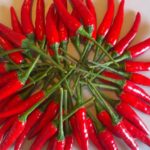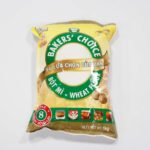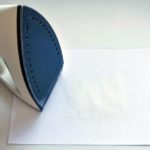When it comes to cooking, frying is a common activity in many households. Fried dishes are very tempting, but frying can be more complicated than boiling or steaming. Frying generates heat and is time-consuming. Frying can also cause oil splatters, which can burn and make the kitchen messy.
However, smart chefs don’t worry about these issues thanks to the following helpful tips:
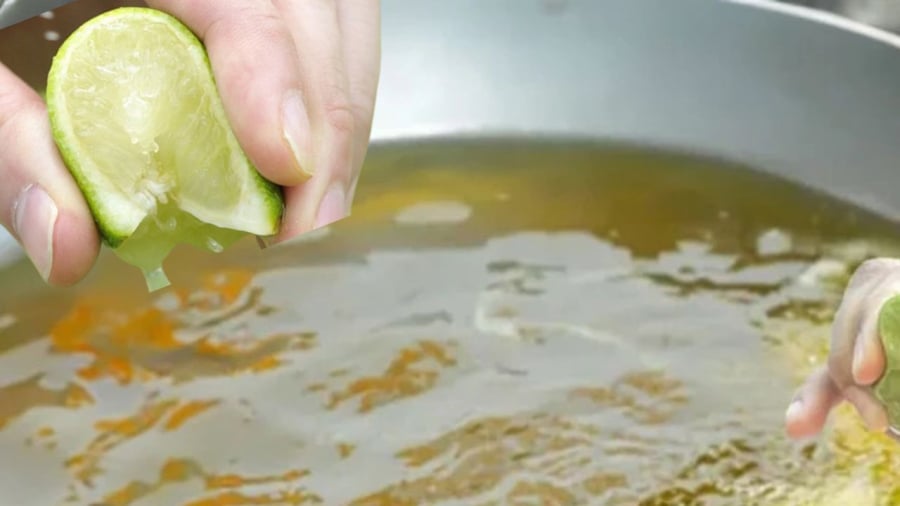
Use fresh lemon juice – a clever trick of experienced chefs
Experienced chefs have a great trick of using lemon to make their fried dishes crispy and maintain their crispiness for longer.
You can apply several ways of using lemon for frying:
Drop a few slices of lemon into the hot oil, then use chopsticks to swirl the lemon slices around the pan.
Alternatively, squeeze a few drops of lemon juice into the hot oil before adding the ingredients to fry.
Why use lemon in the oil?
This is because lemon has acidic properties and creates a light texture that is suitable for fried dishes. Adding lemon juice to the frying oil helps make the fried dishes crispy and light, especially if the dishes contain starch, such as fried spring rolls, French fries, etc. This tip saves you time when frying and makes the dishes crispy faster. Furthermore, squeezing lemon juice into the oil before frying prevents oil splatters. So take advantage of a few slices of fresh lemon and you’ll find cooking much easier.
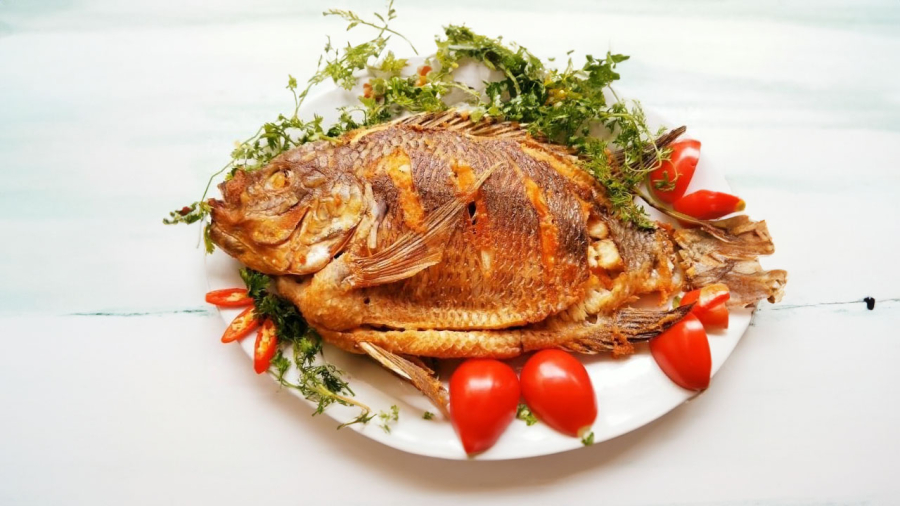
Make use of various types of flour
If you want your fried dishes to be crispy quickly and remain crispy for longer, sprinkle a little bit of flour, such as cornstarch, wheat flour, or tapioca starch, into the oil or onto the ingredients. This method prevents oil splatters when adding the ingredients.
You can do it this way: When pouring the oil into the pan and heating it up, sprinkle the flour and then add the ingredients. Or sprinkle the flour onto the ingredients, such as the wet fish, just wrapped spring rolls, or potatoes… Then, pick up the ingredients and drop them into the hot oil. Flour helps prevent oil splatters very well. Moreover, starch helps make the dishes crispy faster. However, remember that you only use the flour to prevent oil splatters, not to coat the outside of the fried dishes. So just use a little bit. If you use too much, the flour will burn and create an unpleasant smell.
Use banana leaves
Place banana leaves in the pan and then add the oil before frying. When frying, place the ingredients on the banana leaves, and they won’t stick or splatter, allowing you to fry a variety of dishes easily without sticking. Additionally, banana leaves create a pleasant aroma and enhance antioxidant properties.
Add a few salt grains
Salt is also a tip that makes frying easier because it can prevent oil splatters and make the dishes crispier.
In addition, to make the fried food crispy and delicious, you should pay attention to the following tips:
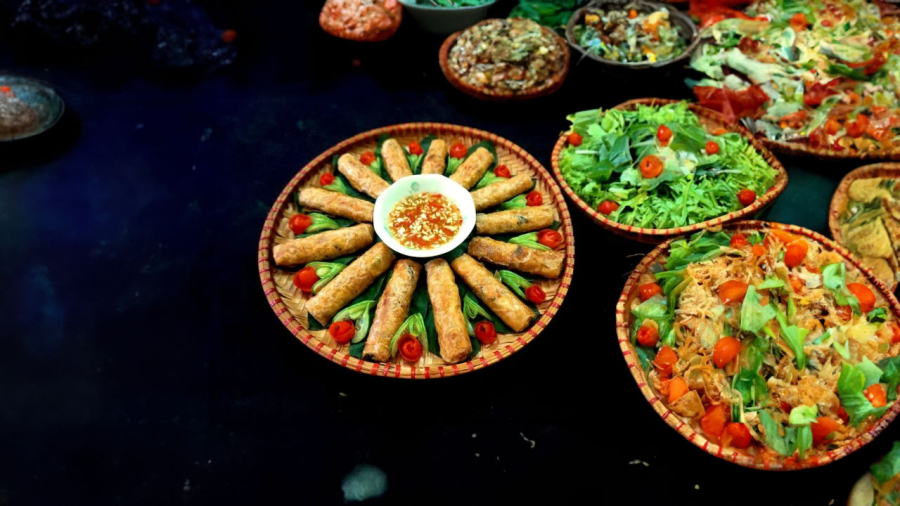
Always dry the pan before adding oil
If you add oil when the pan is not dry yet, it will cause more oil splatters. Therefore, use a soft paper towel to dry the pan before adding oil. Don’t pour oil into an excessively hot pan as it can be harmful to your health.
Determine the correct temperature of the oil before adding the food to fry
An important tip to make the fried food crispy on the outside but still juicy and not dry on the inside is to adjust the temperature of the oil and then add the food to fry. If you add the food when the oil is not hot enough, the food will not be crispy on the outside, it will become soft and less crispy or it can break, and it will be greasy inside. Therefore, observe the oil in the pan, when you see it rolling and when you move the chopsticks, you see ripples around, that is the right time to add the food to fry. Frying this way is quick, the outside is crispy, and the inside is still juicy. Do not heat the oil too much as it will produce toxic substances harmful to health.
When taking out the food from the freezer, remember to completely thaw it before frying. Avoid putting too wet food into the frying pan. Use a paper towel to absorb the excess water before frying.
When preparing to take out the food, adjust the heat a little higher to drain the oil when picking up the food. If you keep the stove at a low fire, the oil will soak into the food a lot. When you take it out and use a paper towel to drain the oil, it won’t absorb all of it because the oil has seeped inside, so the food will become greasy.

























